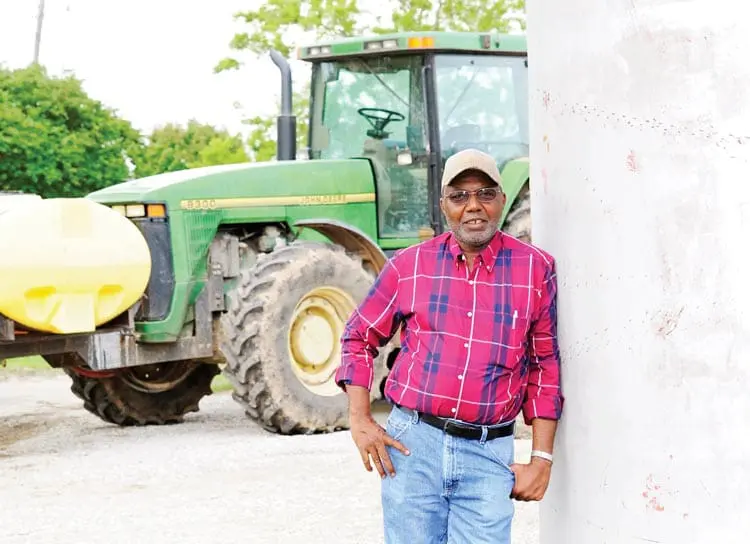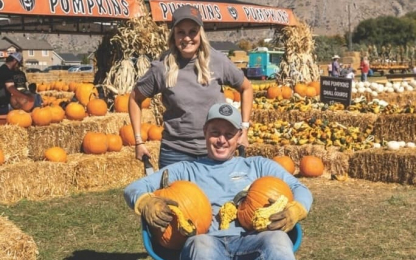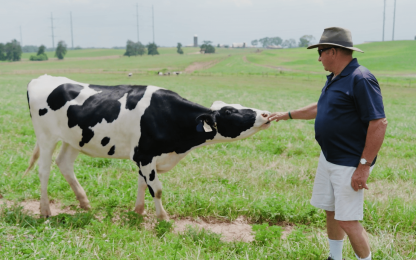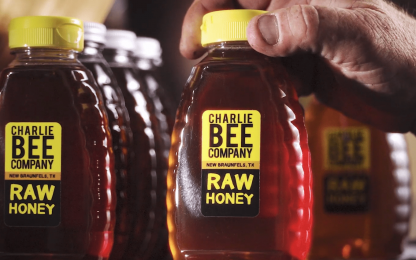A Legacy of Land of Ownership
Building on a legacy started by his great-grandfather just after the Civil War, fourth-generation Louisiana farmer Antwain Downs intends to leave an even stronger legacy for the next generation.
Years ago, Antwain retired from a career at a local paper mill and started farming full time. Since then, he has expanded his farmland as opportunities have come his way. And he is quick to give credit to his ancestor for starting the family farm, located near Bastrop, in northeastern Louisiana.
“If he hadn’t bought the land in 1872, I wouldn’t have had land to start farming on,” Antwain said, who has farmed part time for nearly three decades, even while working off the farm.
He has expanded the original acreage, the first generation of his family to do so, to its current 550 acres. And while he and wife, Patricia, have only one child, a daughter who works as a business analyst, they also have grandchildren, who someday might be interested in taking over the property.
“Even if the next generation doesn’t want to farm, they can rent it for the income, or if they do want to farm, they’ll have something to start with,” Antwain explained.
Improving the Land
He faced challenges when looking to expand. Much of the acreage that Antwain has purchased needed improvement before it could deliver the yields he wanted, and that required hard work, commitment and patience. Today, most of his land is precision-leveled and irrigated.
To manage and work the farm, Antwain relies on one full-time and several seasonal employees. Patricia, a retired registered nurse, helps with the books and also serves as a respected sounding board.
Over the years, Antwain has shifted his focus from cotton, his original crop, to today’s rotation of corn, wheat and soybeans.
“Around 2007, we started to change over to grain, when cotton prices got low,” he said. “The transition wasn’t hard, but the biggest problem was where to store the grain and how to transport it.”
Since then, he’s found a strong ally in a local cooperative, which stores and markets his grain, and has built his own on-farm storage bins. To manage the new crops and minimize expenses, he also has purchased harvesting equipment, trucks and trailers in partnership with two neighboring farmers.
Cooperating With Other Farmers
Cooperating with other farmers is important to Antwain. He is a founding member and treasurer of the Morehouse Black Farmers and Landowners Association, and is also a member of the National Black Growers Council.
“I learned from the school of hard knocks,” he said. “If I can make it easier for other farmers in my situation by sharing my experiences, then I want to help.”
Antwain also credits the Extension agents from Southern University and Louisiana State University AgCenter for helping him develop the farm plan that has brought him to his current success.
Always looking to the future, Antwain recognized last year that interest rates would likely rise and that his current loan structure put him at financial risk. On the recommendation of his local commercial banker, he refinanced 240 acres of land with Louisiana Land Bank, locking in a 15-year interest rate.
“You get to know your banker,” Antwain said, “And I know he wants to see me do well. I didn’t move all my business to Farm Credit, but I’m looking forward to working with them.”
Louisiana Land Bank appreciates the opportunity to work with Antwain.
“We look forward to helping Mr. Downs grow his business and reach his goals,” said his loan officer, Louisiana Land Bank Assistant Vice President Jarrod Sellar.



